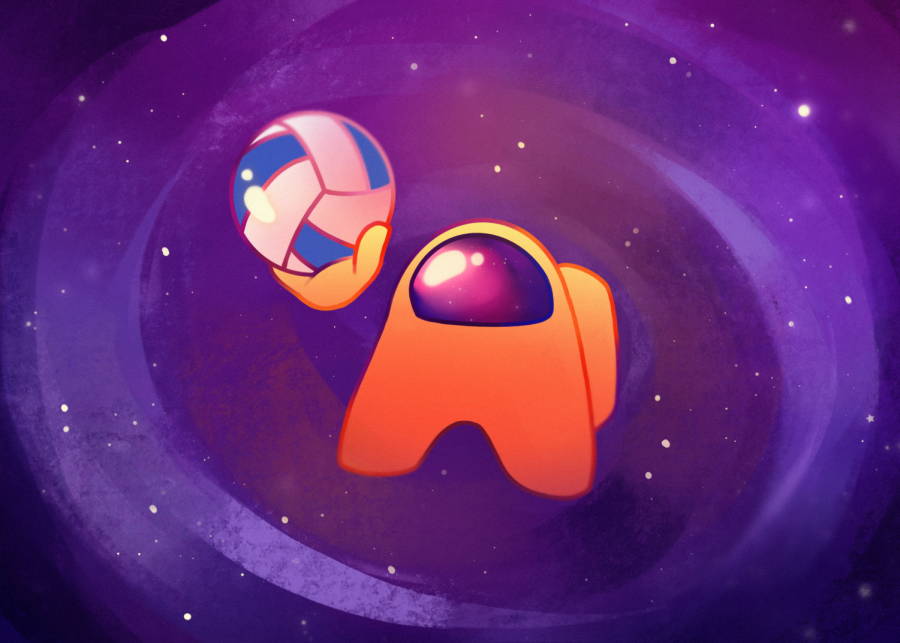You’re the impostor — water polo edition
Floating in a world of uncertainty and insecurity can feel like being the imposter in Among Us for the very first time. My experience with impostor syndrome in water polo almost made me quit the sport, but I realized that the fun bus rides home and the banter between teammates, not just winning or losing, were at the heart of my athletic career.
Red lights flashed across my face as my hands clammed up, my body almost paralyzed out of terror. I was surrounded by what can be described best as absolute chaos, and the only figures I saw were different-colored blobs pacing from side to side.
This could easily be a description of an intense game of Among Us, but it’s actually the story of a different kind of impostor. This is how I felt during my very first game of water polo, and I argue that it was more terrifying than anything InnerSloth could ever come up with.
To be honest, I felt this way at almost all of my water polo games. No matter how hard I tried, I could never be better than the players who had more years of experience than me. Throughout the season, I was never able to put a label on what I was feeling. I was confused — why was I so anxious when I was getting more playing time and being given more opportunities during games? The answer was imposter syndrome.
When I was the last person to finish the drills, out of breath while everyone else seemed fine, I convinced myself that I was an outcast on the team and that I didn’t even deserve to be there in the first place. Even when I did score a goal, I still doubted myself and wondered if it was just sheer luck. No matter which way I swam, I felt like I was drowning in guilt and confusion.
Halfway through the season, it got to a point where I would cry in my teammate’s car on the way to water polo practice, dreading my inevitable mediocrity. I considered quitting more times than I’d like to admit. After all, I thought, what’s the point of playing sports if I’m not even good?
After what felt like a million more tear-filled car rides, I finally found my answer in a game against our rivals — Mountain View High School. I had just missed my hundredth opportunity to score during the game, but the ball I had just thrown bounced back to me, giving me a second chance to score. To add to the pressure, I knew it was probably the last shot before time ran out.
The red lights and paralysis started to creep up on me again, but they were drowned out by the supportive cheers from my teammates, both in the pool and on the bench. I honestly don’t remember if I made the shot or not, but I do remember how transformative that game was for me. Instead of being held back by my self doubt and worries, I was able to relax and talk about snacks with my teammates on the bus ride home.
For the first time in my water polo career, I actually had fun. I didn’t worry about the outcome of the game or how much I thought I sucked. I just sat there, sipped on my blue gatorade while eating Cheez-Its and actually enjoyed myself. Finally, I had found the answer to my question.
I realized you don’t have to be an Olympic-level athlete to enjoy a sport. There is so much more to a sport than simply winning or losing — it’s the supportive moments that make it all worth it. Sure, the car rides to games or the last penalty shot can still be stressful, but I wouldn’t trade the bus rides back, the locker room chats or the banter while conditioning for anything.
And now when I’m presented with a scoring opportunity or even the chance to demonstrate a drill, I’m able to effectively complete my tasks without worrying about being sabotaged by my nerves.






